- Home
- Darren Shan
Koyasan Page 3
Koyasan Read online
Page 3
Koyasan wanted to run, and she would have, except she could hear people coming behind her. It was too late to flee. Seconds later, her father was lifting her off the ground and laughing, hugging her hard to his chest. Her mother raced past them to grab Maiko. She was smiling.
Koyasan turned her head to watch her mother. She saw her slow before reaching the bridge. A few cautious, hesitant steps... then she stopped. Maiko was still crossing the stream, and their mother had noted the same strangeness in the girl as Koyasan had.
“Maiko?” she called. The tremble in her voice made Koyasan’s father squint at his younger daughter with suspicion.
“Maiko?” Koyasan’s mother called again as the girl — the thing — came to the end of the bridge. She waited there a moment, as though deciding whether or not she could leave the bridge and enter the world of the living.
Then she took the final step, off the bridge, on to the human side of the stream.
Koyasan’s mother reached out to the Maiko- shaped thing, but didn’t actually touch her. Her hands were shaking. She sunk to her knees and stared into the tiny girl’s lifeless eyes. This close, Koyasan could see a sort of mist in the pair of globes, like a thin veil covering Maiko’s eyes.
Koyasan’s father put her down and went to kneel beside his wife. He called Maiko’s name, without response, then laid a hand on her shoulder and shook her gently, fearfully.
Nothing happened.
Behind them, the other villagers were muttering uneasily. They couldn’t see what Koyasan and her parents could, but they knew something was wrong. A few started praying aloud, to ward off evil spirits. A burly man - Terani, one of the village elders - stepped forward and told Koyasan’s parents to take their daughters home.
“There’s something foul in the air,” Terani said. “We should not be out here this late. The world belongs to the dead at night.”
Koyasan’s father glanced at her mother. A silent question passed between them. Koyasan’s mother hesitated, then nodded shortly. Together, they picked Maiko up. She didn’t move or display any emotion. The pair held her between them, staring at her as if she was some weird animal they’d captured. Then Koyasan’s mother wrapped both arms around the girl and marched back to the village, trying hard not to let her fear and uncertainty show.
Koyasan’s father watched his wife depart, a troubled look twisting his features. Then he glanced down at his eldest daughter, who was pale-faced and shivering. He gulped, then hugged her quickly and gently prodded her ahead of him. Reluctantly, knowing she was to blame for whatever had happened to Maiko, Koyasan set off after her mother and the Maiko-shaped thing that had taken the place of her little sister.
EMPTY VESSEL
KOYASAN’S PARENTS SPENT an hour trying to provoke a reaction from Maiko. They hoped she might be frozen or in shock, so they wrapped her in warm clothes and sat her next to the fire. They rubbed her flesh hard, slapped her face lightly, pinched and poked her, all to no effect. Maiko remained stony-faced, never moving, staring ahead sightlessly, eyelids never dropping a fraction.
Outside the hut, other villagers mingled, discussing what had happened, fearing the worst. Some were afraid of Maiko. They thought she was one of the dead come to life. If Koyasan listened closely, she could hear them talking about burning or drowning the girl-shaped spirit.
Eventually, Koyasan’s mother sat back and wiped tears from her face. “We must ask Itako to examine her,” she said. “She will know what to do.”
“Not yet,” Koyasan’s father protested, fearing the worst and not wanting to admit it. “Let’s give her more time. If we wait, she might...”
“No,” Koyasan’s mother interrupted sharply. “We’ve waited too long already. I want to know what happened to our daughter and if it’s possible to help her.”
Koyasan’s father sighed, then looked across. “Get Itako,” he said roughly, the first indication that he was angry at his eldest daughter.
Koyasan didn't want to leave — she was afraid of the villagers — but she knew better than to argue with her father when he was in a mood like this. Silently she rose and stepped outside.
When the villagers saw her, all talk ceased. They stared at her, expecting an explanation. But Koyasan said nothing, only walked through them — they parted before her as if she was diseased — head held low, meeting nobody’s gaze, shuffling towards Itako’s hut as fast as she could without actually running.
Itako was waiting for her, sitting by her fire, staring into the flames, a shawl clutched round her throat.
“I’ve heard the rumours,” the old woman said, before Koyasan had a chance to speak. “Tell me what you know. Quick.”
The way Itako spoke — like a teacher asking a student to provide her with the answer to a problem — calmed Koyasan. She found herself telling Itako about the trip to and from the waterfall, letting Maiko cross the bridge, the laugh, Maiko running into the forest, waiting, the voice which had called her name, and finally the not-Maiko coming back. She felt like crying when she finished, but didn’t want to weep in front of Itako. So, with a great effort, she held the tears back.
Itako said nothing for a while, just stared into the flames. Then, with a grunt that might have been a curse, she stood, picked up several small bags and hobbled out of the hut, signalling for Koyasan to follow.
The oddly matched pair marched through the ranks of villagers. Koyasan kept her head low again, but Itako regarded the crowd with a dark, contemptuous expression. She’d heard the talk of burning and drowning, and it had disgusted her.
In Koyasan’s hut, Itako pushed the girl’s parents aside and picked Maiko up, displaying no fear. She sat a little bit away from the fire, then examined Maiko closely, whispering to her, chuckling, stroking the girl’s hair back from her face, gazing deep into her eyes, opening her mouth to study her tongue. Koyasan and her parents were silent during the examination, awaiting Itako’s verdict.
After five minutes, Itako opened one of the bags and poured a small amount of pink powder on to Maiko’s tongue. When nothing happened, she opened another bag, mixed a greenish powder into a paste by spitting on it, then rubbed the paste into Maiko’s eyes. She waited a few minutes, observing the girl’s eyes like an owl watching a mouse hole. When Maiko’s eyelids remained as they were, and the mist failed to lift, Itako sighed and cradled the girl’s head to her chest.
“She’s not a spirit,” Itako said. “This is your daughter.”
Koyasan and her parents gasped with relief. Fresh tears sprang to their eyes, tears of hope this time. But before they could get too excited, Itako spoke quickly to make them aware of all the facts.
“Her soul has been stolen by spirits in the graveyard. They separated it from her body. This is your daughter’s form, but there’s nothing inside. She’s as empty as a dry well.”
There was a long, tense silence.
“What does this mean?” Koyasan’s father finally asked.
Itako shrugged. “She will die. Without her soul, she is nothing. She will not eat or drink. You can force her, but it’s better if you don’t. She will linger for several days, then her body will pass. As for her soul...” Itako shrugged again. “The spirits can keep it alive tonight, but if they don’t destroy it by morning, it will dissolve with the rising of the sun.”
As Koyasan and her parents stared in shock at the elderly lady and the doomed Maiko, Itako stood and set the young girl down. “There is nothing we can do about this,” she said softly but sternly, looking from Koyasan’s mother to her father. “You must accept it and pray for help. Under no circumstances must you go to the graveyard to try and rescue Maiko’s soul.” Itako’s gaze settled on Koyasan and her cold eyes held Koyasan’s in a tight, unbreakable grip. “We are helpless in this matter.”
Itako stared at Koyasan for maybe another two seconds. Then she looked away and sighed. “I will tell the others what has happened. You should spend this night with your daughter, praying — maybe the spirits will take pity if t
hey hear your prayers. But let Koyasan come to me if she wishes. Don’t stand in her way.”
With that, she slipped out. Koyasan’s parents immediately rushed to Maiko’s side, wailing and clutching at her. But Koyasan didn’t move. Instead of sorrow, she was filled with fear. Because when Itako said that “we are helpless”, there was “nothing we can do”, Koyasan knew that what the old woman had left out at the end was, “but Koyasan can.”
THE MISSION
KOYASAN STAYED WITH her parents and Maiko for maybe thirty minutes, trying to convince herself that she’d imagined the hidden message in Itako’s gaze and words. All she wanted was to stay by her sister’s side and mourn with her mother and father. But she couldn’t. Because part of her knew this wasn’t over. Her parents and Itako could do nothing to save Maiko — but Itako had hinted that perhaps Koyasan could.
Finally, knowing she couldn’t live with herself if she stood by and did nothing when there was a chance to set this terrible situation right, Koyasan told her parents that she was going to see Itako. They only nodded miserably and waved her away, too concerned with the dreadful fate which had befallen their youngest daughter to worry about how it might be affecting their eldest.
The crowd had dispersed around their hut. Everyone had gone home to pray for Maiko and prepare themselves for the hard days to come. Koyasan passed unnoticed by anyone from her hut to Itako’s, slipping through the quiet darkness like a spirit of the night.
Itako was waiting for her, sitting by the fire again, but this time studying the smoke patterns above it. “I wasn’t sure you would come,” she said, without looking at Koyasan. “I knew you understood what I meant, but I thought you might not respond.”
“You told me three days ago that something bad was going to happen,” Koyasan noted miserably.
“Yes. But I didn’t think it would be this bad. And I didn’t think the fear would be as strong inside you as it is. Coming here was the hardest thing you have ever done, wasn’t it?”
Koyasan nodded, tears trickling down her cheeks, unable to hold them back.
Itako turned. Her face was red from the heat and lined sternly — she had something difficult to say. “If you want to save your sister, you’ll have to do much harder things than come to my hut tonight. Your trials have only begun.”
“I can save her?” Koyasan cried.
“Possibly,” Itako grunted.
“How?”
Itako didn’t answer immediately. Instead she scratched her chin and picked at a mole. “I’d go myself if I could,” she mumbled. “Or send one of the men. This is a job for an adult, someone who knows much about the world and the workings of spirits. But you let Maiko go into the graveyard. You were the one the spirits tricked her away from. And you were the one they called to. They singled you out when they hissed your name. It can only be you. That’s the way it is.”
Itako leant forward and crooked a finger at Koyasan. The girl shuffled closer to the old lady. When they were no more than a hand’s width away from each other, Itako spoke in a creaky, cautious whisper.
“You have one night and one night only,” she said. “In the morning, if it has not been restored to Maiko’s body, her soul will dissolve. If that happens, she is damned for certain. But if you can restore her soul before then... return it to its rightful place in her body... all will be well.”
“Restore her soul?” Koyasan echoed, frowning through her tears. “I don’t understand. How can I do that?”
Itako chuckled softly, without humour. “By crossing the bridge, entering the graveyard and stealing it back from the spirits,” she said.
OVER THE BRIDGE
KOYASAN DIDN’T GO home. She knew if she did, her parents would stop her. Bad enough to lose one daughter to the spirits, but if they lost two it would be utterly unbearable. Her parents, like most village folk, were practical. If one child fell down a well, you didn’t throw a second child down after her.
A large part of Koyasan wanted to be stopped. It had screamed at her while she’d stood, listening to Itako, absorbing the old woman’s instructions and advice. It had roared with every step she took when she left the hut and was roaring still. “Don’t be crazy! You’ll be killed! Go home!”
Koyasan ignored it. Somehow, finding strength somewhere deep inside her, she blocked out the voice of reason and the cries of fear, and skulked from Itako’s hut to the bridge leading over the stream into the world of the dead.
That was where she stood now, as rigid as Maiko had been when she returned. Koyasan had never been here at night. Never even been outside the village- after dark. It was scarier than she’d thought it would be. She’d often had nightmares about this, or had lain in bed, imagining what it would feel like if she came to this haunted graveyard in the dark of night. But this was real. She was here. She was going to cross. And the reality was far more terrifying than anything her imagination was capable of making up.
“Three spirits will attack you,” Itako had told her, back in the safe warmth of the hut. “One at a time, they will come. You must defeat these three before you can attempt to bring Maiko’s soul back.”
Koyasan took a deep, slow breath. Her bare feet were cold. Her legs and arms were cold. Her stomach was cold. Only her head felt hot, as her brain sizzled inside its skull like an egg in a frying pan.
There was a half-full moon. She could see the outlines of the tombs and headstones, and behind them the forested hill. Wisps of mist — or the breath of the dead? — lingered around the monuments and trees. No animals moved or made noise, not even owls or crickets. Nothing living ever disturbed the peace of the graveyard at night.
But Koyasan couldn’t see any spirits either. That should have given her reason to be hopeful, except Itako had told her it would be like this.
“They expect you to come. When they stole Maiko’s soul and called your name, they made a secret pact with you. If you honour that pact, and behave according to the rules which govern the dead as well as the living, they must behave in a certain way.
“The spirits will not show themselves until you’ve faced three of them individually. If you lose to any of those three, all of the dead can attack you as they please. But if you defeat the three they send against you, they must wait. And, if you act carefully, they cannot come against you at all.”
Although Koyasan couldn’t see the spirits, she knew they were there, hiding behind the tombs or slithering through the branches of the trees, peering at her, willing her to cross the bridge, drooling at the thought of getting their ghostly hands on a second young girl.
As she stood before the bridge, desperately seeking the courage to advance, Koyasan dug a clove of garlic out of her pocket and raised it to her mouth.
She often nibbled when nervous. It helped calm her. But tonight she stopped, regarded the clove silently, then returned it to her pocket.
“No,” she said softly. “That won’t help. The longer I wait, the less time I’ll have to find Maiko.” “You’ll never find her,” said the part of Koyasan which thought she was crazy to even try. “Go home. Eat your garlic. Stay away from here.”
Koyasan ignored the voice, but it wasn’t easy. She rocked forwards and backwards on the balls of her feet, staring into the darkness. She remembered the last time she’d tried to cross, the headache and sickness. If it had been that difficult in the day, how much harder would it be at night?
“Well,” Koyasan told herself trying but failing to chuckle, “there’s only one way to find out.”
Shutting out the fear, Koyasan walked on to the bridge. She immediately felt a pain in her head, and the bread she’d eaten at the waterfall tried to force its way up her throat.
Gritting her teeth, fighting off both the pain and the acidic remains of the bread, she walked forward quickly, breathing rapidly around her teeth, eyes wide with fear and disbelief. She hadn’t truly expected to do this. Up until a few seconds ago, Koyasan thought she’d lose her nerve and run away when it was time to act. She was
astonished to find herself actually doing what she’d planned to do. Astonished... and dismayed. She wished now she’d said goodbye to her parents and friends because she doubted she’d ever see them again.
Across the bridge she marched* hands curled into fists, head pounding, stomach quivering, teeth clattering. She didn’t feel like she was walking across a bridge. She felt like she was crossing a tightrope. Only it wasn’t the drop she feared, but arrival on the other side.
And then, in a rush, she was off the bridge, standing on the drooping blades of grass in the graveyard which she had feared all of her short life.
The pain and sickness disappeared as suddenly as they’d come. For a second, Koyasan was filled with a sense of wonder and achievement. She felt like punching the air and shouting with delight.
But then the first spirit appeared out of nowhere and hurled itself at her, howling with vicious, demonic delight.
THE SNOW BEAST
THE SPIRIT WAS man-shaped, but taller and broader than any man Koyasan had ever seen. It was white-skinned, a shiny, glistening white. It had a blank, roughly etched face, just a hint of eyes, nose and ears. But its mouth was fully formed and larger than it should be, full of long, sharp, icy white teeth — like stalactites.
For a confused second, Koyasan stared at the spirit. It reminded her of something, but she couldn’t put her finger on it. Then a memory clicked into place. It didn’t snow very often where Koyasan lived, but there had been a heavy fall a few years ago, and Koyasan and the other children had spent a couple of days throwing snowballs at each other and making snowmen. This creature had that same appearance. It was made out of snow.

 Ocean of Blood
Ocean of Blood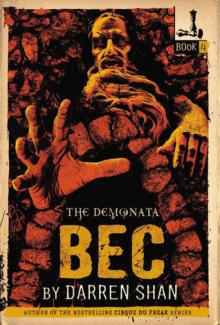 Slawter
Slawter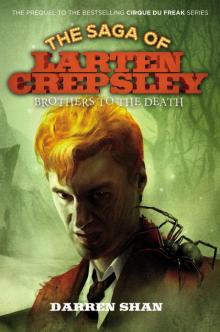 Brothers to the Death
Brothers to the Death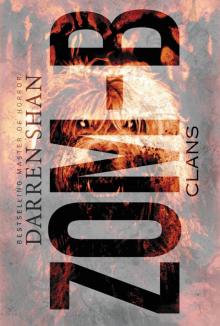 Zom-B Clans
Zom-B Clans Zom-B Fugitive
Zom-B Fugitive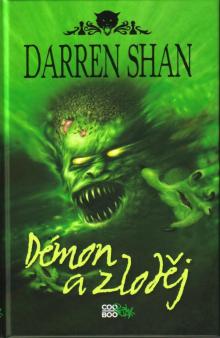 Demon Thief
Demon Thief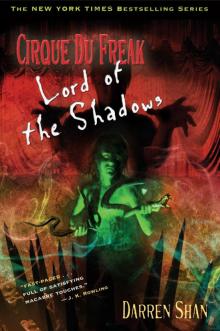 Lord of the Shadows
Lord of the Shadows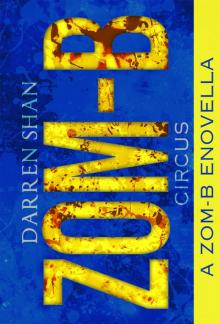 Zom-B Circus
Zom-B Circus Hell's Heroes
Hell's Heroes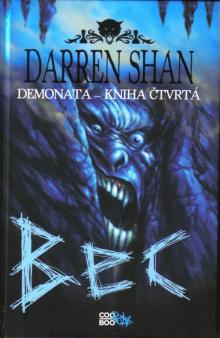 Bec
Bec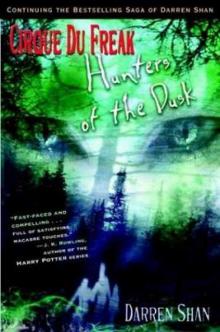 Hunters of the Dusk
Hunters of the Dusk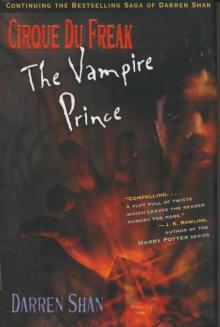 The Vampire Prince
The Vampire Prince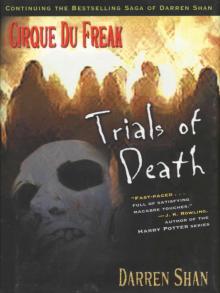 Trials of Death
Trials of Death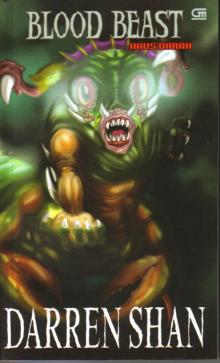 Blood Beast
Blood Beast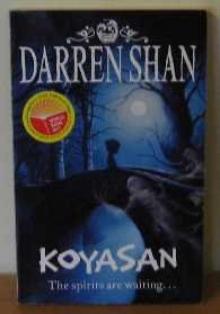 Koyasan
Koyasan Zom-B Goddess
Zom-B Goddess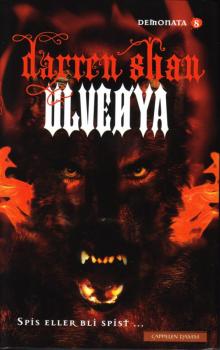 Wolf Island
Wolf Island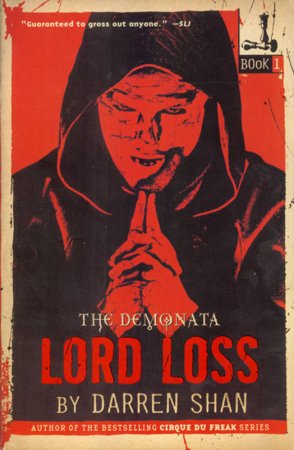 Lord Loss
Lord Loss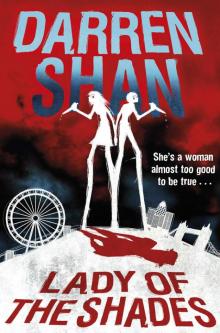 Lady of the Shades
Lady of the Shades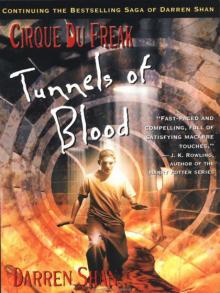 Tunnels of Blood
Tunnels of Blood Zom-B Bride
Zom-B Bride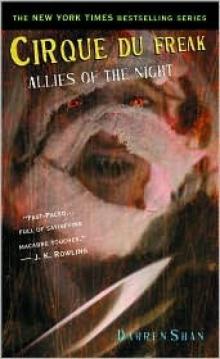 Allies of the Night
Allies of the Night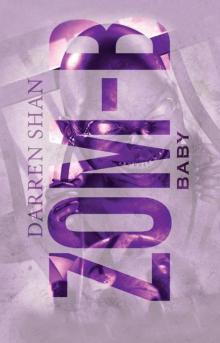 Zom-B Baby
Zom-B Baby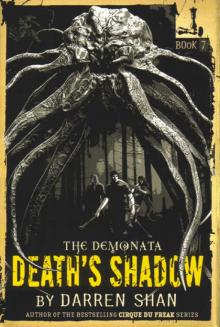 Deaths Shadow
Deaths Shadow Zom-B Angels
Zom-B Angels Zom-B Mission
Zom-B Mission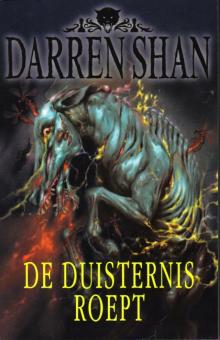 Dark Calling
Dark Calling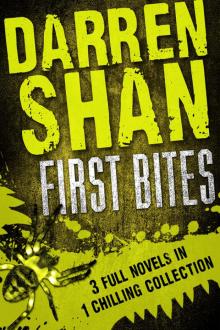 First Bites
First Bites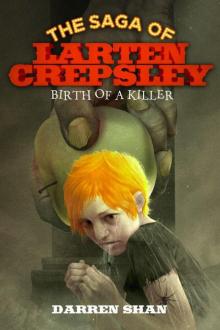 Birth of a Killer
Birth of a Killer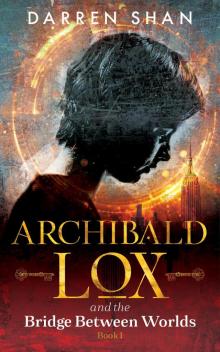 Archibald Lox and the Bridge Between Worlds
Archibald Lox and the Bridge Between Worlds Archibald Lox and the Vote of Alignment
Archibald Lox and the Vote of Alignment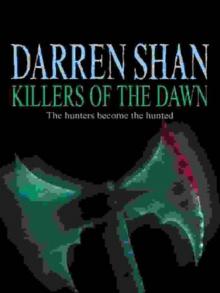 Killers of the Dawn
Killers of the Dawn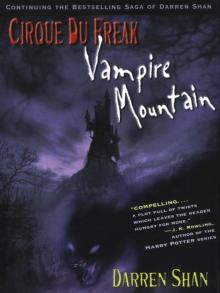 Vampire Mountain
Vampire Mountain Zom-B Gladiator
Zom-B Gladiator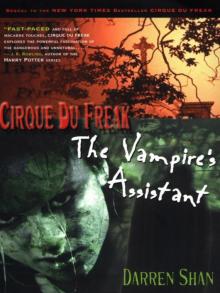 The Vampire's Assistant
The Vampire's Assistant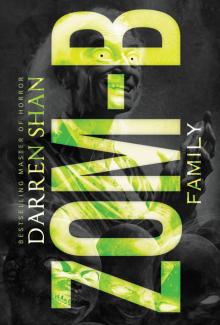 Zom-B Family
Zom-B Family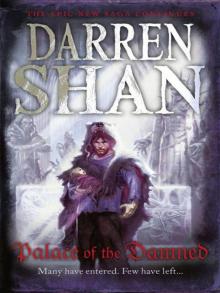 Palace of the Damned
Palace of the Damned A Living Nightmare
A Living Nightmare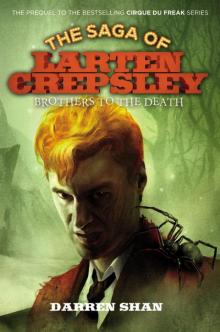 Brothers to the Death (The Saga of Larten Crepsley)
Brothers to the Death (The Saga of Larten Crepsley)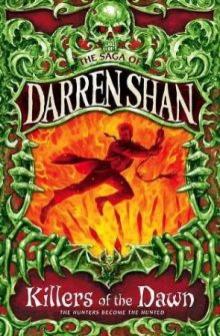 Killers Of The Dawn tsods-9
Killers Of The Dawn tsods-9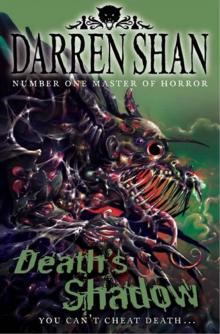 Death's Shadow td-7
Death's Shadow td-7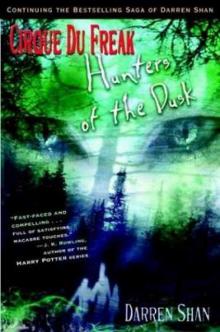 CIRQUE DU FREAK 7 - Hunters of the Dusk
CIRQUE DU FREAK 7 - Hunters of the Dusk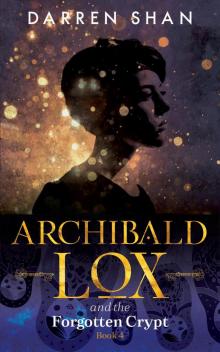 Archibald Lox and the Forgotten Crypt
Archibald Lox and the Forgotten Crypt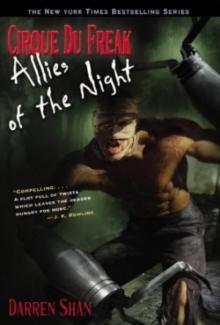 Allies Of The Night tsods-8
Allies Of The Night tsods-8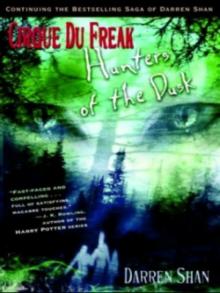 Hunters Of The Dusk tsods-7
Hunters Of The Dusk tsods-7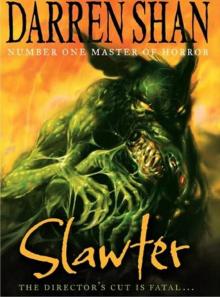 Slawter td-3
Slawter td-3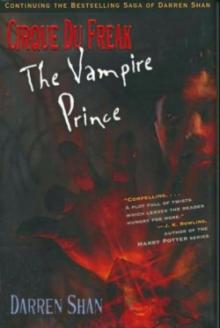 Vampire Prince tsods-6
Vampire Prince tsods-6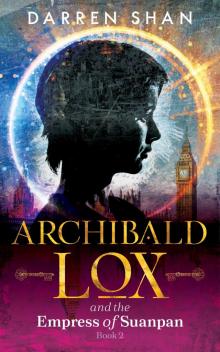 Archibald Lox and the Empress of Suanpan
Archibald Lox and the Empress of Suanpan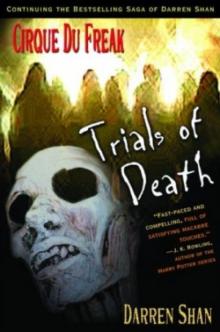 Trials Of Death tsods-5
Trials Of Death tsods-5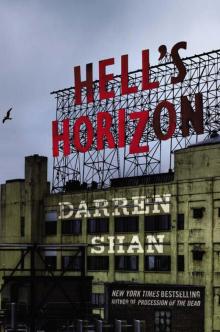 Hell's Horizon tct-2
Hell's Horizon tct-2 ZOM-B 11
ZOM-B 11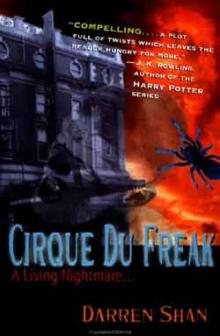 Cirque Du Freak - Book 1
Cirque Du Freak - Book 1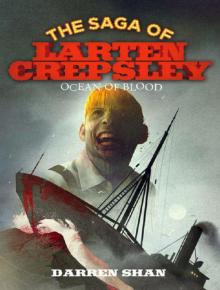 02 Ocean of Blood tsolc-2
02 Ocean of Blood tsolc-2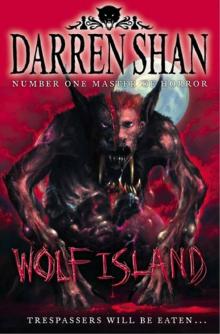 Wolf Island td-8
Wolf Island td-8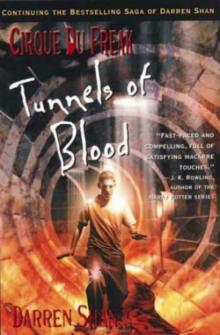 Tunnels of Blood tsods-3
Tunnels of Blood tsods-3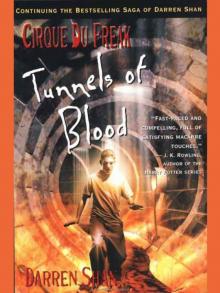 Cirque du Freak 3 - Tunnels of Blood
Cirque du Freak 3 - Tunnels of Blood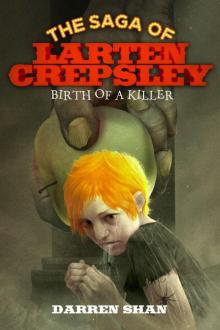 01 Birth of a Killer
01 Birth of a Killer The Vampire's Assistant and Other Tales from the Cirque Du Freak
The Vampire's Assistant and Other Tales from the Cirque Du Freak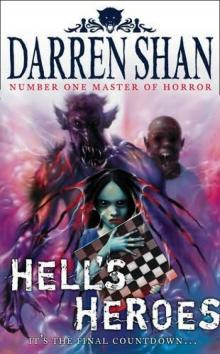 Hell's Heroes td-10
Hell's Heroes td-10 Zom-B #12
Zom-B #12![[Cirque du Freak 11] - Lord of the Shadows Read online](http://i1.bookreadfree.com/i1/03/31/cirque_du_freak_11_-_lord_of_the_shadows_preview.jpg) [Cirque du Freak 11] - Lord of the Shadows
[Cirque du Freak 11] - Lord of the Shadows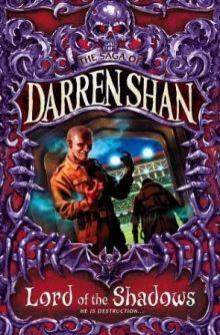 Lord Of The Shadows tsods-10
Lord Of The Shadows tsods-10 Demon Apocalypse td-6
Demon Apocalypse td-6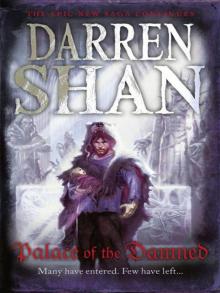 The Saga of Larten Crepsley (3) – Palace of the Damned
The Saga of Larten Crepsley (3) – Palace of the Damned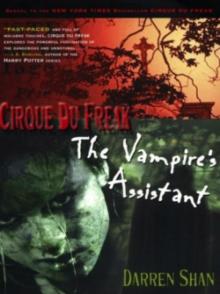 The Vampire's Assistant tsods-2
The Vampire's Assistant tsods-2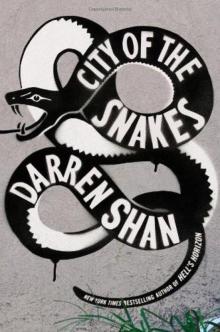 City of the Snakes tct-3
City of the Snakes tct-3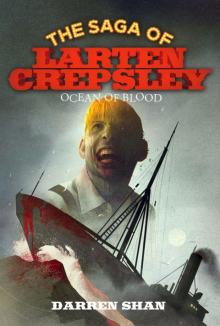 02 Ocean of Blood
02 Ocean of Blood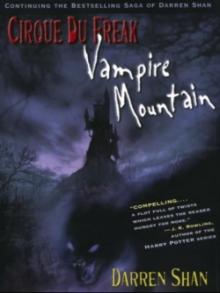 Vampire Mountain tsods-4
Vampire Mountain tsods-4 The Lake Of Souls tsods-11
The Lake Of Souls tsods-11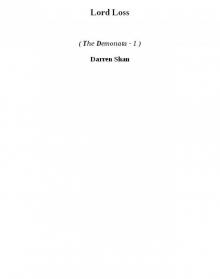 Lord Loss td-1
Lord Loss td-1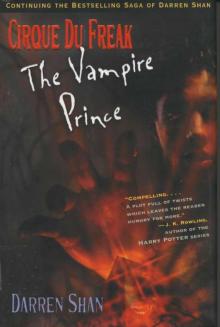 Cirque Du Freak Book 6 - Vampire Prince
Cirque Du Freak Book 6 - Vampire Prince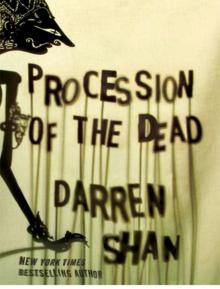 Procession of the dead tct-2
Procession of the dead tct-2 Vampire Prince
Vampire Prince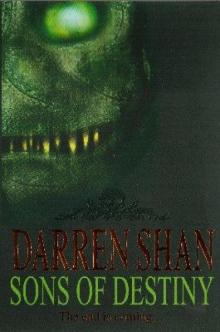 Sons Of Destiny tsods-12
Sons Of Destiny tsods-12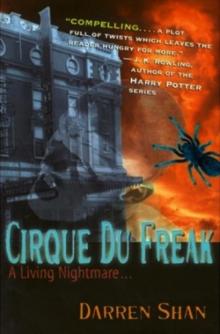 Cirque Du Freak tsods-1
Cirque Du Freak tsods-1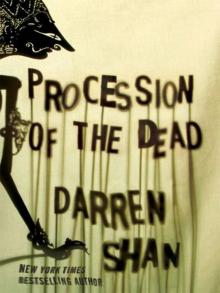 Procession of the Dead
Procession of the Dead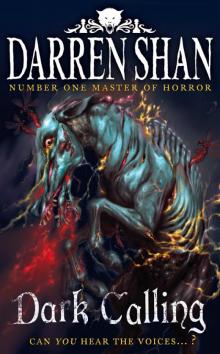 Dark Calling td-9
Dark Calling td-9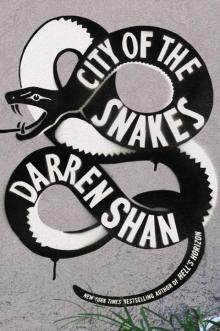 03 City of the Snakes
03 City of the Snakes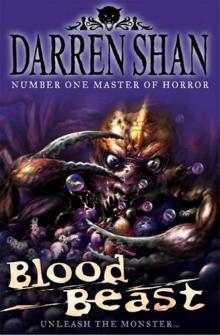 Blood Beast td-5
Blood Beast td-5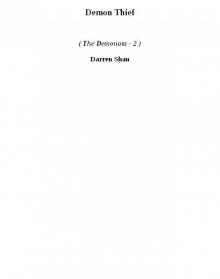 Demon Thief td-2
Demon Thief td-2